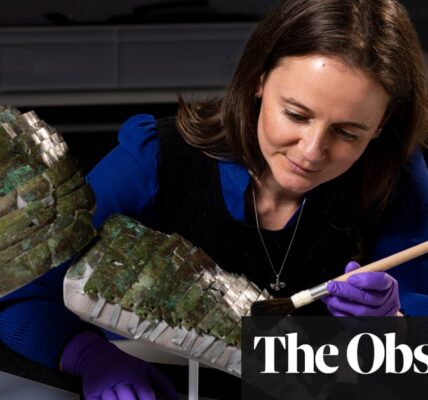According to the study, over 90% of women attempting to conceive are deficient in important nutrients.

Researchers have found that over 90% of women attempting to conceive may have inadequate levels of crucial vitamins necessary for a successful pregnancy. They anticipate this issue to intensify as vegetarian diets gain popularity.
Studies conducted on over 1,700 women from the United Kingdom, New Zealand, and Singapore who were preparing to become pregnant showed that a majority of them had deficiencies in essential nutrients typically found in meat and dairy products. These nutrients are vital for promoting proper growth of the developing fetus.
Prof Keith Godfrey, an epidemiologist and the main researcher of the study at the University of Southampton, expressed astonishment at the prevalence of low or inadequate levels of micronutrients. He suggests that individuals who do not have a high-quality diet may need to supplement their intake in order to meet their nutritional needs.
The women, aged 18 to 38, were recruited to the Nipper study, an international trial that is exploring whether combinations of nutrients and probiotics before and during pregnancy can improve the health of mothers and their babies.
The doctors took blood samples to check for essential nutrients at the start of the study. Then, the participants were randomly divided into two groups: one group received a standard prenatal vitamin supplement with folic acid, beta-carotene, iron, calcium, and iodine, while the other group received an upgraded version with extra riboflavin, vitamins B6, B12, and D, probiotics, zinc, and myo-inositol.
Prior to becoming pregnant, 90% of women had inadequate levels of folate, riboflavin, vitamin B12, or vitamin D, and a significant number also displayed signs of vitamin B6 deficiency during the later stages of pregnancy, according to a study published in Plos Medicine. The use of supplements resulted in an increase in vitamin levels for the women, although not always to the recommended levels.
Godfrey stated that further research is necessary to determine the optimum quantities, but the quantities provided – available for purchase without a prescription at a pharmacy – were enough to significantly decrease the occurrence of deficiency.
According to Wayne Cutfield, a professor at the University of Auckland, it is currently advised for women who are trying to conceive to take folic acid and vitamin D supplements. However, Cutfield suggests that pregnant women should also be provided with over-the-counter multivitamins.
Although the research was generally well-received by experts, some pointed out that Godfrey, Cutfield, and others received funding from Nestlé and were also involved in patent filings related to the improved supplement. However, Godfrey clarified that the authors did not have any financial stake in the patents and that the analysis and paper were created independently from the company.
According to Duane Mellor, a dietitian and professor at Aston Medical School, there are still concerns regarding potential conflicts of interest. He believes that these conflicts can extend beyond the research and paper itself and can impact how the scientific findings are communicated after they are published.
Bypass the advertisement for the newsletter.
after newsletter promotion
Asma Khalil, a professor and vice-president of the Royal College of Obstetricians and Gynaecologists, expressed concern about the study’s discovery that 90% of women had insufficient levels of certain vitamins. She emphasized the importance of taking preconception and pregnancy supplements, which are readily available over the counter.
According to her, the RCOG recommended that women and pregnant individuals should follow a nutritious diet and make sure to take folic acid and vitamin D supplements.
According to Professor Judith Stephenson from UCL, one major advantage of this study is that it is a randomized clinical trial looking at the effects of supplements before pregnancy. While the Nipper trial does not have all the answers, if I were planning to get pregnant now, I would focus on maintaining a healthy diet, taking an over-the-counter supplement, and consulting with a doctor to determine if I need a higher dosage of folic acid due to conditions like diabetes or obesity.
According to Godfrey, the issue could potentially worsen as society shifts towards consuming more plant-based diets. These diets may lack essential vitamins B12 and D. Godfrey suggests that we need to focus on fortifying foods more extensively and also consider growing plant-based options that have higher levels of these micronutrients.
Source: theguardian.com

